- Home
- Trevor Hoyle
Seeking the Mythical Future Page 3
Seeking the Mythical Future Read online
Page 3
Kristiensen stepped over the remains and rapped with the butt of his pistol on the cabin door. There was no sound or movement from within. He gestured to the Second Mate and the boy to take up positions on either side of the door and then called out:
‘This is the Captain. No harm will befall you if you lay down your arms and open the door. But ifƒ you resist I shall slaughter you to a man, without hesitation or mercy. You know I am a man of my word.’
There was a movement behind the door, and then: ‘You are forgetting, Captain, that we have the hostage.’ It was, unmistakably, the wheedling nasal croak of the Summarian.
‘The stranger means nothing to me.’ Kristiensen replied. ‘It is the safety of the ship which is my chief concern.’ He winked at Mr Swann. ‘Will you obey the order or shall I use force?’
‘One moment, Captain.’
There came the sound of rapid, muttered conversation and the occasional oath or two, then eventually the Summarian’s: ‘The game is not worth the candle. We have your word? Is it a bargain that we shall receive no punishment?’
Kristiensen smiled but his voice was without humour. ‘Absolutely. You have my word.’
A bolt was drawn back and the door opened to reveal, in the dim yellow light of a smoking oil-lamp, the slitted wary eyes of the Summarian peering from an olive countenance and behind him the fearful expression of three members of the crew – all four holding an assortment of weapons and semi-poised in the shadows, prepared to fight if need be, yet none of them so keen as to make a premature move.
Beyond them, glowing like a pale ghostly incubus, Kristiensen could see the figure of the stranger in the bunk; the Captain stared and it was all he could manage not to utter a cry of amazement: the stranger’s eyes were open and he appeared to be fully conscious. And even as Kristiensen watched, the stranger’s hands gripped the sides of the bunk and he began to rise up into a vertical position, whereupon the Summarian and his fellow conspirators, following the Captain’s gaze, dropped their weapons and fell to their knees, a babble of craven supplication and incoherent fear on their lips.
*
The day, as Kristiensen had expected, was heavy and lethargic. The barque moved fitfully through the low waves, occasionally throwing up a spumed peak of pinkish froth which glistened against the black tar-coated timbers above which the unicorn’s horn of the prow pointed unchangingly towards New Amerika.
It seemed to Kristiensen – as it always did at this point – that this was a voyage without end. Perhaps there would actually come a time when they wouldn’t sight land, when the lookout in the crow’s nest would strain his eyes day after day, searching the horizon in vain for the thin hazy sliver signifying journey’s end. But meanwhile his charts reassured him that within twelve hours, twenty-four at the most, they would be leaving the doldrums and picking up the northward-sweeping currents of the Main. Then it would be plain sailing into the Bay of Granada and past the clusters of tropical islands which comprised the Granadian Chain.
It was at midday, the sun almost directly overhead, that the sloop – fore-and-aft rigged for speed – was sighted, approaching from the south-west. Even before it was close enough to be identified, Kristiensen and the Second Mate exchanged glances of foreboding; it was unlikely to be a King’s frigate in this latitude, and even less likely a merchantman. There remained only one possibility, which as the vessel gained on them during the next hour transpired to be the possibility they most dreaded. It was a pirate ship.
The Captain appraised it through the telescope, noting the massed cannon, the battering-ram prow reinforced with iron rivets, the crude skull-and-crossbones flag fluttering limply at the mast. Immediately he instructed that a telegraph message be sent to the mainland (they were now within range of the coastal receiving stations) asking for assistance from the Royal Naval Fleet, though the likelihood of a vessel being anywhere in the vicinity was extremely small. But it was their only hope, for they hadn’t the remotest chance of outrunning a sloop rigged for speed on the high seas.
She bore down on them steadily at eight or nine knots, the scarlet bow-wave aimed unerringly to intercept their course within the hour. The pirates would have no compunction about the wholesale slaughter of Captain and crew, for the cargo in the lower holds was far too valuable to allow the maudlin diversion of a few petty scruples. On the open market each of the three hundred human souls would fetch anything from five to ten Spanish gold dollars, depending on condition, and anything dead would be sold as protein supplement for the slaves already in captivity. The edict of King Jimmy K to limit the number of slaves brought into the country (for fear of over-supply which would depress market values) had not yet come into force, and the traders were scrambling over themselves to fill their pens before the official quotas became law.
Mr Swann reported that the message had been sent and an acknowledgment received, though no promise of aid had been given. Kristiensen knew that it would require a minor miracle to avert what seemed an inevitable and inescapable fate, and as the pirate vessel came within cannon-range he prepared himself for the warning shot across his bows. The two vessels were now maintaining a parallel course, with the pirate ship closing minute by minute; then Kristiensen became aware of something he couldn’t account for. He glanced across at the Second Mate, and he too was looking puzzled. It seemed – though at first Kristiensen doubted the evidence of his own eyes – that the Slave Trader was actually pulling away and, inconceivably, the gap between the two shipls was widening. But why should this be? Kristiensen wondered. The pirate vessel was falling away astern, the distance between them increasing all the while, and yet the sails of his own vessel were flapping tiredly in the stale air, providing the barque with hardly enough power to outpace a longboat.
‘Damn, but that’s the queerest thing!’ Kristiensen exclaimed. ‘How do you account for it?’ he asked Mr Swann, who was not looking at the pirate ship but gazing down on the main deck.
Kristiensen turned his attention there too, and standing at the rail, observing the receding vessel with perfectly calm detachment, was the tall figure of the stranger, the skin of his bare torso as pale as alabaster.
2
The Experiment
Dr Mathew Black took the Greencab downtown and hopped out on the corner of Third Avenue and East 14th, opposite the impressive granite bulk of the Franko Foundation building. He was late; it seemed that nowadays he could do nothing to schedule, from eating breakfast to making love: time escaped as through a sieve and he was always in a hurry to catch up with yesterday. And now the MDA (Medikal Direktorate Authority), not content with restricting his budget for the new fiscal year, had increased his workload with yet another priority case for which they required immediate answers and snap judgments. If only he had the staff, resources and equipment then maybe he could have gone half-way to meeting their demands, but they were expecting the impossible when all he had to offer was the merely adequate.
The new blonde receptionist smiled her most fetching grimace and he mentally filed her away under Desirability +7, Availability +9. Perhaps dinner in a quiet restaurant, a couple of highballs, and the suggestion of a nightcap in his bachelor apartment … but in the meantime he had enough on his plate, sex aside, to fill most of his waking hours. So he adopted his professional manner and asked for the Admissions Sheet, which she placed before him on the grey vinyl-topped counter. There were three entries: two private patients who were in for routine checks and the third with the ominous words ‘MDA Referral’ printed alongside. Black noted that the patient had already been placed in isolation, which was standard procedure for any admission without a previous medikal record.
He handed the clipboard to the receptionist and said, ‘Is anyone attending to the MDA case?’ He had a slight lisp which many of the female staff found rather attractive.
‘Dr Hallam,’ the blonde receptionist said. ‘You weren’t here and so—’
‘I didn’t ask for an autopsy, Miss—’
‘Jar
dine,’ the girl said, a little breathlessly.
‘Miss Jardine. I wasn’t here because I was stuck in the cogging traffic, which as you’ll appreciate is pretty heavy at this time of day.’
‘I quite understand,’ Miss Jardine said.
‘Good. I think we’re going to get along.’
‘I do hope so,’ Miss Jardine breathed.
Black smiled to show he was master of the situation, and went on his way. He was conscious of being watched, and as always wished he had an extra couple of inches to add to his less than adequate five feet four.
Dr Hallam looked up as he came into the isolation room with its metal bed and leather straps and the two tall cabinets filled with apparatus. There was the faint smell of preserving fluid.
‘You didn’t waste any time, I see,’ Black said, taking down a rubber apron and putting it on over his street-clothes.
‘I did wait,’ Dr Hallam said, almost primly. ‘The case is urgent and I thought under the circumstances it would be wise to proceed without delay.’
‘Very correct,’ Black said dryly. ‘As usual,’ he added, glancing at the patient. The sight of the man lying on the metal bed startled him; he seemed to be transparent. ‘Have you carried out any tests?’
‘In accordance with standard procedure I bled him first.’ Dr Hallam nodded towards three bloated leeches floating in a bell-jar containing a colourless fluid.
‘I shouldn’t have thought there was anything to bleed,’ Black said lightly.
‘There wasn’t. Whatever that stuff is in his veins, it isn’t blood. It might even be toxic because, you may have noticed, the leeches are dead.’
Black moved towards the patient with a certain amount of caution. ‘Have you tested for typhus, cholera, bubonic plague? We don’t want a widespread epidemic on our hands.’ There was still the fear amongst the urban population of New Amerika that one of the unconquered diseases might suddenly flare up and decimate an entire city. It had happened in 18.14, 18.29, and even now – in 18.40 – the most allusive rumour was enough to make front-page headlines and panic whole communities into evacuating the cities and heading westwards towards the scattered pioneer settlements of the lowland plains.
‘Negative on all counts,’ Dr Hallam said.
Black touched the patient’s arm. ‘This is an interesting condition. Did the MDA say what they hoped to learn about him?’
‘Not specifically; they’d like a full report prior to deportation. But as he came off a slave ship they’re worried about him being a possible plague-carrier.’
‘He’s to be deported?’ Black said. ‘They’ve already decided that he’s to receive treatment?’
Dr Hallam faced him across the bed, smiling faintly and without warmth. ‘You know as well as I do, Mathew, that “treatment” is the last thing he’ll receive in Psy-Con. It’s a pity we can’t keep him here under observation for a while; he could prove very useful in our research program. Perhaps the stuff in his bloodstream has a high immunity factor against disease, something we could isolate and use as a preventative.’
Black nodded thoughtfully. Tentatively he touched the man’s left shoulder and asked, ‘Why was he branded? It looks like an old burn that’s healed up.’
‘Nobody seems to know. He was like that when they found him.’
‘And why the Q shape? It must have some significance. Is it a slave brand, do you think?’
‘I’ve checked the records and there’s nothing listed using that symbol as a means of identification. He was picked up in the ocean, and that’s as much as anyone knows about him.’
Black felt for the man’s pulse. ‘How long has he been unconscious?’
‘He was like this when they admitted him early this morning. I assume he was put under heavy sedation by the Authority mediks, though there’s nothing in the file. Do you think he might be violent?’
‘Let’s bring him round. We’ll try pins in the soles of his feet.’
Dr Hallam was averse to the practice but it was standard procedure in bringing someone round; after several pins had been inserted into his flesh the patient showed signs of returning consciousness; he opened his eyes and the first word he uttered was ‘Ouch.’
‘Normal response,’ Black remarked. ‘That’s encouraging.’ He made sure that the straps securing the man’s wrists were as tight as possible and then leaned over the bed so that he was in his line of vision. The patient’s eyes were open, though hazy and unfocused. For some reason they made Black feel unconfortable, as though he wasn’t there, the eyes looking right through him.
‘Can you hear me? Do you understand me?’
The man said, ‘I’ve got pins and needles in my feet.’
Dr Hallam laughed. ‘I’ll say you have.’
‘At least he understands Spanish.’ Black began to question the patient but the answers weren’t at all satisfactory. He seemed to have no memory at all of the past, couldn’t tell them who he was or where he had come from, and had no idea of how he had found himself in the middle of the ocean. The odd thing was that he didn’t appear curious or perturbed that he couldn’t remember anything. Altogether it was very strange.
‘Well,’ Black said finally, ‘at least you’re conscious, which is some sort of progress.’ He said slowly and clearly, ‘Do you know what’s going to happen to you? Do you know that the Authority have made arrangements for your deportation?’
The patient’s eyes hardened into focus and he looked at Black for the first time. ‘The Authority?’
‘The MDA. They’ve sent you here for preliminary tests, but afterwards you’re to be committed to Psy-Con.’
Dr Hallam cast a warning glance at Black; he received the message and nodded to show that he understood. Patients sometimes reacted violently or went into seizure when informed what was to happen to them. They were already emotionally disturbed and it served no purpose to alarm them unnecessarily.
But the man said calmly, ‘Whatever happens will happen. There is nothing any of us can do to alter the prearranged pattern.’ He tried to move and realized he was strapped down. He showed surprise.
‘Standard procedure,’ Black and Dr Hallam said together, and laughed.
‘I see.’ The man seemed to understand perfectly. He was unlike any patient Black had dealt with before: he was odd, no question about it, but didn’t exhibit the usual signs of madness. Most patients had a cock-eyed view of the world and found it difficult to accept society as it was and to live by the rules as laid down under Royal Charter. Some of them thought the whole thing a fake, an elaborate confidence-trick with the MDA the arch-villain: they even accused Black of being part of the subterfuge, implying that it was they who inhabited the real world while he lived in a dream. The problem was in making them see the error of their ways, in pointing out that the only alternative to a full and normal life was Psy-Con, the mere thought of which was enough to give anyone the willies.
Black said that he wished to speak to Dr Hallam in private. They walked slowly along the corridor to Black’s office.
‘How do you think the Authority would regard an application for deferment?’ He spoke as if the thought was still germinating in his mind. ‘We could learn a great deal here—’
He checked himself as a group of men in black marched past, the tramp of boots loud and echoing. There was somebody dressed in white with bare feet among them.
Dr Hallam opened the door of Black’s office. ‘On what grounds? He’s free of any disease, negative on all counts. We have no medikal right to hold him, once a deportation order has been issued. I don’t see why I should stick my neck out for the sake of a loonie.’
Black went to the window and stared out for a moment. Then he turned abruptly. ‘We could say that the skin condition is causing us some concern, that we want to try some compounds on it, sulphuric or something. Couldn’t we say that?’ His lisp became more pronounced as his voice quickened with excitement. ‘We’ve carried out the standard tests, fine, and there’s been negative
reaction, but we’re the experts on contagious diseases, not the Authority. We could say in the report’ – he waved his hands seeking suitable phrases – ‘we could recommend long-term observation. Perhaps there’s a virus we’re unfamiliar with, related to the skin condition, who’s to know? We want to keep him here just to make sure.’
‘Better safe than sorry.’
‘Exactly.’ Black rubbed his hands together. Dr Hallam hadn’t seen him so worked up for some time.
‘And if the Authority agrees, what then?’
‘Gestalt Treatment.’
‘But it hasn’t been approved,’ Dr Hallam said, alarmed. ‘We don’t know what effect it might have.’
‘That’s why we should try it now,’ Black said eagerly. ‘I’ve been dying to have a go for ages, what better opportunity? We have a guinea-pig ready and waiting and strapped down. Who knows what we might learn about how the Treatment works? It could be a breakthrough.’
‘It might kill him. Have you thought of that?’
‘There are always risks in any experiment,’ Black conceded. ‘In any case a post-mortem would be almost as valuable; and just think of the prestige if we succeed!’
Dr Hallam went to the window and gazed silently into nothingness, then looked directly at Black. ‘Do we have the necessary equipment?’
‘We have a galvanoscope which Benson was using for the separation of alkaline solutions. He’s being transferred to the King’s Commission, so he won’t miss it. And it shouldn’t be beyond us to rig up a galvanic battery and belt.’ He gripped Dr Hallam’s arm. ‘What do you say? Is it worth a try?’ His hand moved downwards and gripped Dr Hallam’s left buttock. There was a wicked gleam in his eye.
Dr Hallam shuddered. ‘You always know the best way to get round me. I should say no—’

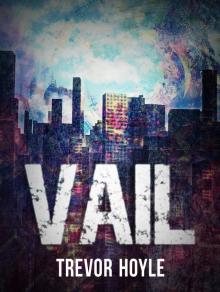 Vail
Vail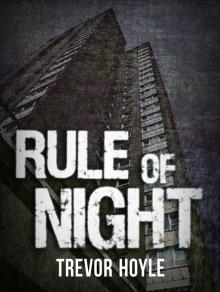 Rule of Night
Rule of Night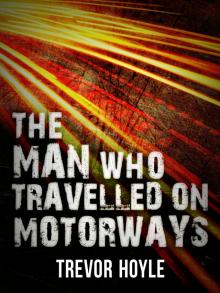 The Man Who Travelled on Motorways
The Man Who Travelled on Motorways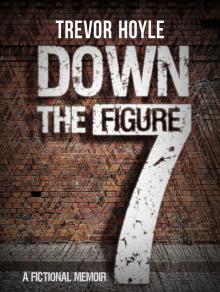 Down the Figure 7
Down the Figure 7 The Gods Look Down
The Gods Look Down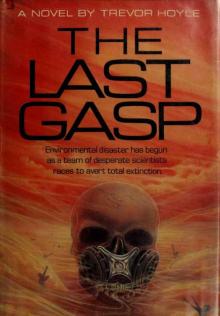 Last Gasp
Last Gasp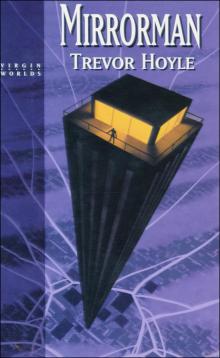 Mirrorman
Mirrorman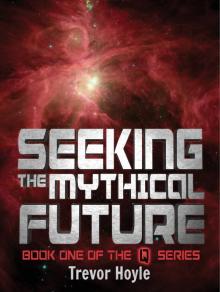 Seeking the Mythical Future
Seeking the Mythical Future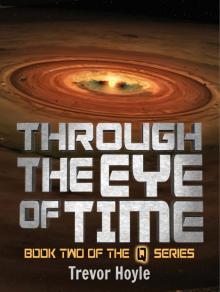 Through the Eye of Time
Through the Eye of Time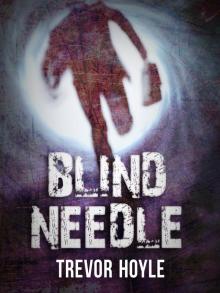 Blind Needle
Blind Needle Earth Cult
Earth Cult